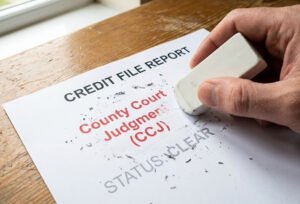Breathing Space is a government scheme that can offer some respite for people struggling with their debts – and it’s become much more popular in recent months.
With the ongoing cost-of-living crisis, rising interest rates, and increased job insecurity, more people than ever are struggling with their debts and seeking expert help. In fact, figures from the Insolvency Service found that Breathing Space registrations saw an annual jump of 26% between 2023 and 2022. This represents 21,232 new Breathing Space registrations in a single quarter, 313 of which were Mental Health Breathing Spaces.
But why are more people registering for Breathing Space and how might it help you tackle your debts?
What is Breathing Space?
Breathing Space is a government-backed scheme designed to help people who are struggling to keep up with their debt to seek debt advice.
Also known as the Debt Respite Scheme, Breathing Space offers anyone with problem debt up to 60 days free from creditor action. This is legal protection that will prevent most types of enforcement action and contact from creditors as well as freezing interest and charges.
You can only enter Breathing Space once in any 12-month period and eligible applicants can’t already be in a debt management solution like a debt relief order (DRO) or individual voluntary arrangement (IVA).
What’s the difference between standard and Mental Health Breathing Space?
Dealing with problem debt can affect your mental and physical health. The stress, uncertainty, and shame that can be associated with escalating debts can be especially difficult if you already struggle with your mental health.
Mental Health Breathing Space is intended to protect those experiencing a mental health crisis so that they can take care of their wellbeing before having to seek debt advice.
Unlike standard Breathing Space, Mental Health Breathing Space must be certified by an Approved Mental Health Professional (AMHP) and lasts for as long as the person is receiving mental health crisis treatment plus 30 days.
There’s no limit to the number of Mental Health Breathing Space terms someone can enter in a year and, just like during a standard Breathing Space, they’ll be protected from further action and contact from creditors during this time.
Why has there been a jump in people registering for Breathing Space?
The 26% annual jump in people registering for Breathing Space indicates that the cost-of-living crisis is continuing to affect personal finances and driving more people into problem debt.
With rising costs affecting the prices of everyday essentials like food, gas, electricity, and fuel, and interest rates driving up rents and mortgages, it’s perhaps unsurprising that more people are falling behind with their debt repayments. This group may also include people who have never been in arrears before and don’t know about the different debt management solutions available.
Breathing Space gives people a break where they can concentrate on seeking debt advice and finding the right management solution for them without having to worry about being chased by creditors or facing extra interest charges.
How can I apply for Breathing Space?
If you’re experiencing problem debt and could benefit from Breathing Space, our friendly team of debt professionals is here to help.
You can only access Breathing Space by seeking advice from a debt adviser. All applications will be considered, but it’s worth keeping in mind that it’s not the right option for everyone.
Our advisers will talk you through the different options available and let you know if there’s a suitable debt management solution that you may be better off entering straightaway, rather than taking breathing space first.
Ready to find out more? Give us a call on 0161 660 0411 or send a message here






